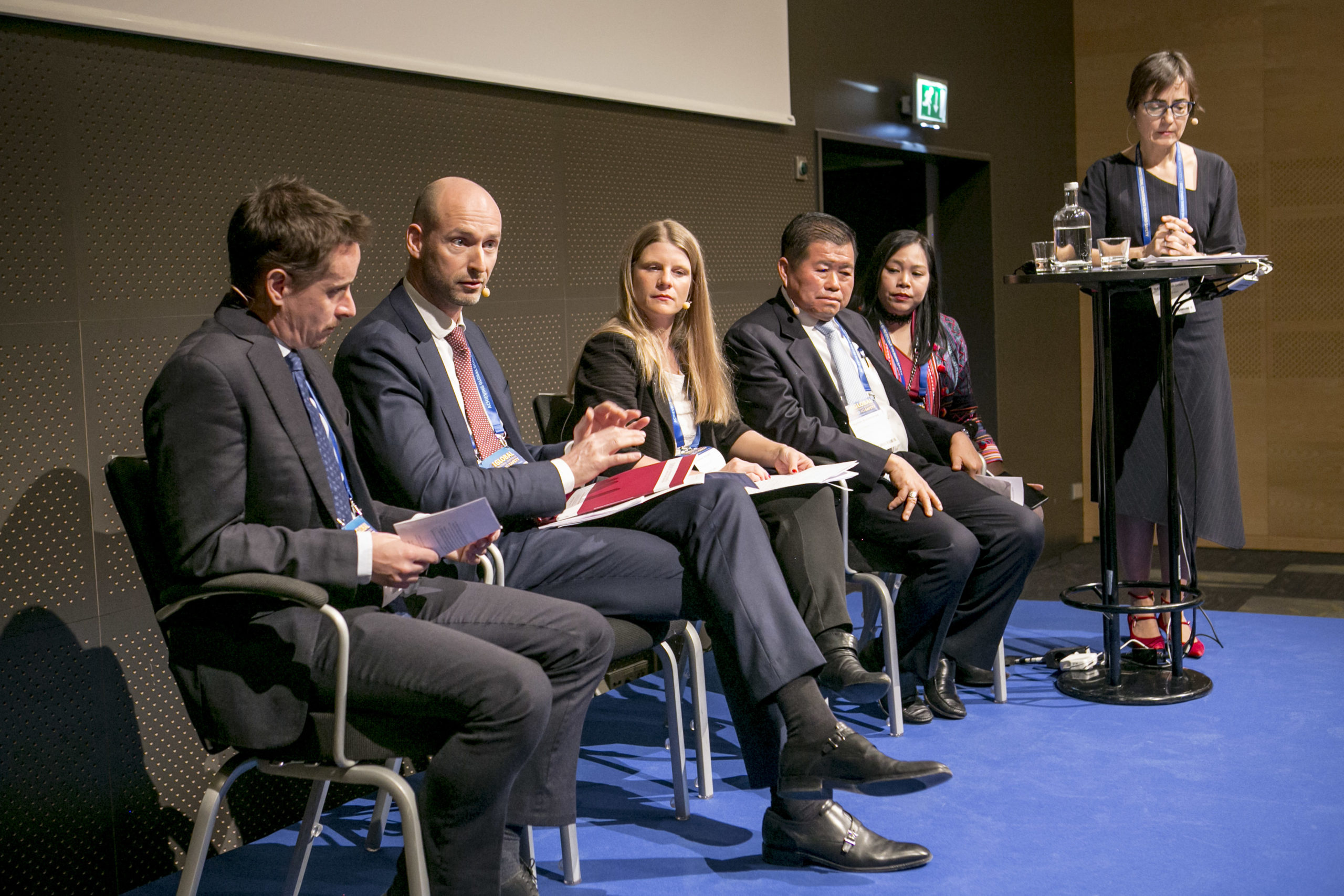The panellists unanimously agreed that motorcycles have an important place in traffic and society and should not be ‘demonised’ as a result of safety concerns. The panel advised to follow the integrated approach addressing:
• Promotion of affordable and effective training and education to improve rider skills when obtaining a license in Low- and Medium-Income Countries, promote helmet wearing and consider updating car driver training to better detect motorcycles;
• Updating vehicle technical requirements based on the UN Vehicle Technical Regulatory framework and through enforcement of traffic law, while recognising regional diversity, variability in infrastructure, traffic conditions and stages of economic development;
• Road Infrastructure improvements and maintenance by mandating urban and rural infrastructure owners to improve quality, maintenance and motorcycle-friendliness of roads and to identify black spots.
Particularly interesting was also the report by Mr. Tom Bishop (AMEND) on the rapid growth of motorcycles in African countries leading to a higher standard of living, access to health care, and jobs. He reported on his research in Tanzania, Ghana, Kenya, and Rwanda and his advice to governments to take a measured approach rather than banning the vehicles from traffic, making their use safe and bring benefits for the population.
In the run-up to the Ministerial Conference, WHO reported in 2018 that 28% of road traffic fatalities are associated with powered two-wheelers, and in some countries this proportion can be as high as two thirds.
The official summary report of the session on Safety of Powered Two Wheelers can be downloaded here.
Hosted and organised by the Government of Sweden and the World Health Organisation, the 3rd Global Ministerial Conference on Road Safety took place on 19–20 February 2020 in Stockholm.
The Stockholm Declaration is the outcome of the conference, connecting road safety to the implementation of the 2030 Agenda for Sustainable Development. It also reflects the recommendations of the conference’s independent Academic Expert Group and its scientific assessments of progress made during the last decade.

